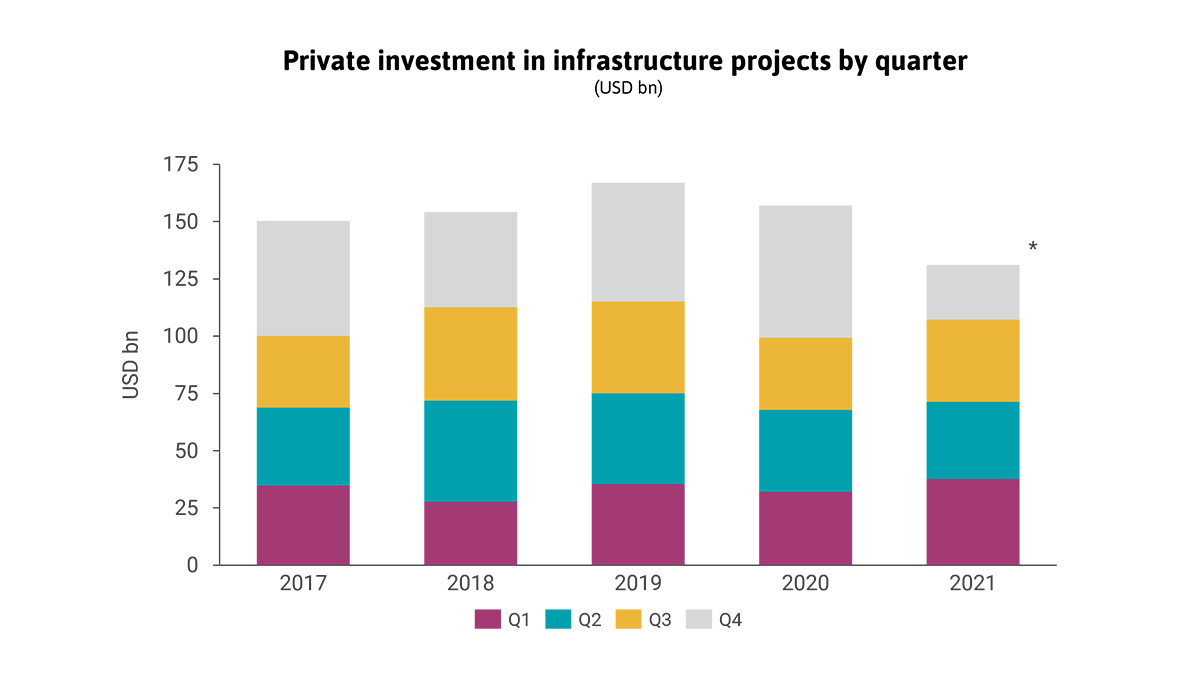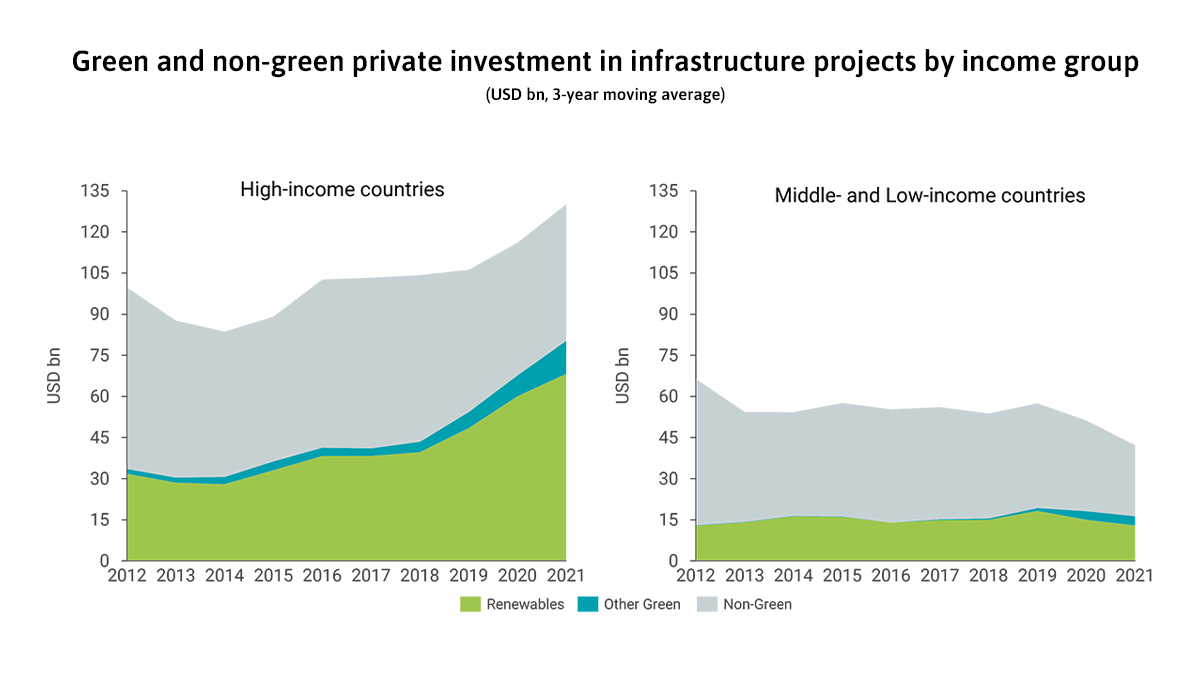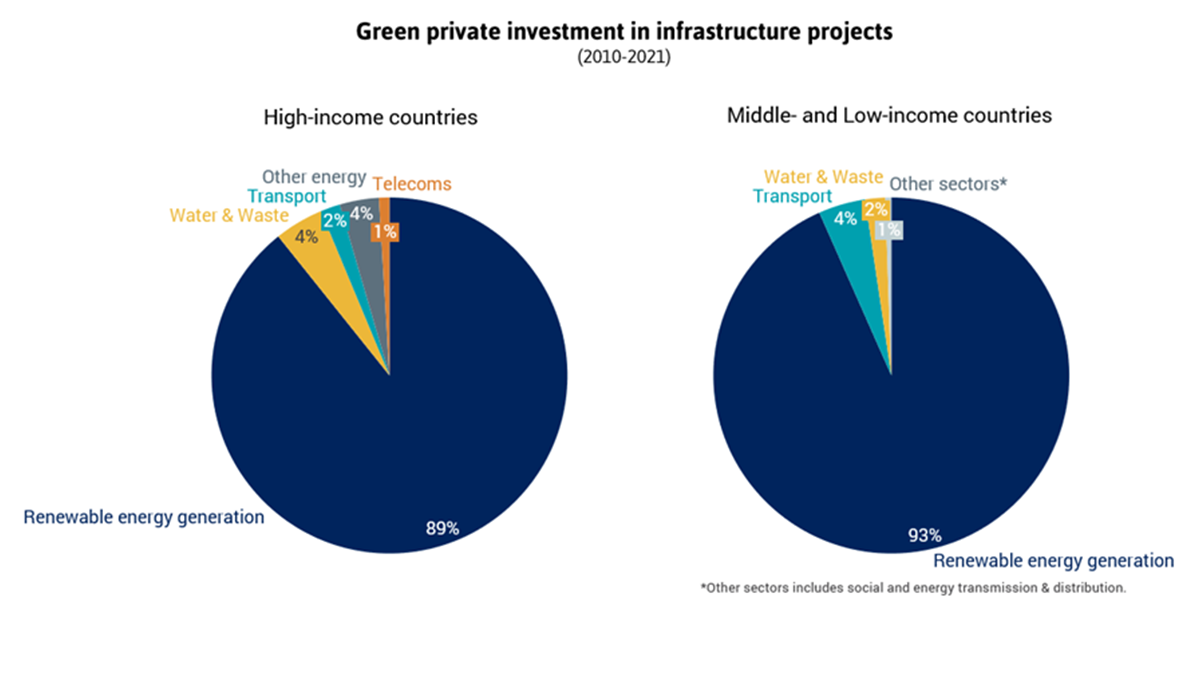961 results found
Featured results



More results
This paper examines investments - in the form of equity or debt in direct investments to infrastructure. The reason for focusing on direct investment is twofold. First, the overall analysis of debt and equity capital markets for infrastructure exceeds the scope of this study and involves instruments that trade on regulated stock and bond markets. Second, the analysis of direct investments by private investors in listed infrastructure enables us to focus more on the risk analysis process that these investors typically perform when approaching an investment.

This report gives an overview of the main types of government and market based instruments and incentives able to boost the mobilisation of financial resources to long-term investment.


This report provides a comprehensive overview of digital transformation in Russia, including chapters on the general digital economy in Russia, the global best practice for enhancing digital platforms in Russa and boosting digital innovation.

This publication draws on the Private Sector Participation (PSP) experience of four emerging economies Brazil, Peru, the Philippines, and Turkey based on in-depth case studies by Energy Sector Management Assistance Program (ESMAP).

It addresses the growing worldwide interest in the use of light rail metro transit (LRMT) schemes to provide urban transport solutions and reviews the potential use of public-private partnership (PPP).


In 2021, private investment in infrastructure projects in primary markets recovered to its pre-pandemic level but remains stagnant and far shy of what is needed to close the infrastructure investment gap.



Private investment in infrastructure projects in primary markets was resilient to COVID-19 pandemic shocks



In 2021, global green private investment in infrastructure projects in primary markets rose to a record-high share of 60%, but this trend needs to accelerate and expand beyond renewables to meet climate goals.



Green investment in infrastructure outside of renewables is limited. While renewables represent almost 90% of total green private investments in infrastructure projects, green investment in other sectors only represent 14%.


Cities are at the forefront of the pandemic crisis and are key players in the fight to achieve net-zero emissions targets. The recovery choices they make today will set urban agendas for years to come.
This brief describes how pro-poor approaches to infrastructure go beyond macro-level efforts at poverty reduction, the breif outlines how they target particular activities and populations in relation to energy and water supply.


The procurement guidelines were introduced in April 2015 by ADB. The purpose of these Guidelines is to inform those carrying out a project that is financed in whole or in part by a loan from the Asian Development Bank (ADB), ADB-financed grant, or ADB-administered funds.



This is a summary of policies and procedures governing procurement and selection of consultants in Bank-financed projects.


Government Procurement Agreement establishes a framework of rights and obligations with respect to laws, regulations, procedures and practices regarding public procurement.

The exercise is part of an annual ranking of the PPP context across countries undertaken by the World Bank group.
Brazilian Decree nº 7.520/2011 and then Decree nº 9.357/ 2018 establishes the National Program for the universalization of Access and Use of Electric Energy - “LUZ PARA TODOS/LIGHT FOR ALL” until the year 2022, intended to provide the service with electricity to the portion of the rural population that does not have access to this public service.
The Program "More Light for the Amazon" aims to promote social and economic development of communities located in remote regions of the Legal Amazon, encouraging activities that increase family income and the sustainable use of the natural resources of the Amazon Forest, the integration of actions from the various spheres of the government, and the consequent promotion of citizenship and the dignity of that population.

WHO and UNICEF established the Joint Monitoring Programme for Water Supply, Sanitation and Hygiene in 1990, and published regular global updates throughout the Millennium Development Goal period.


The World Bank Group recently published a primer titled 'Project Development Funds (PDFs) - Supporting Project Preparation to Structure Successful Public-Private Partnerships (PPPs)' to help better understand how to establish and operate PDFs.



 Infrastructure Monitor
Infrastructure Monitor



